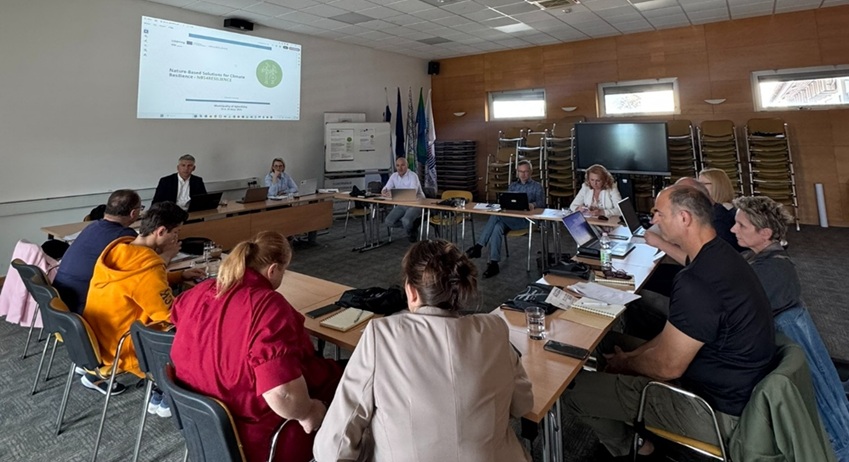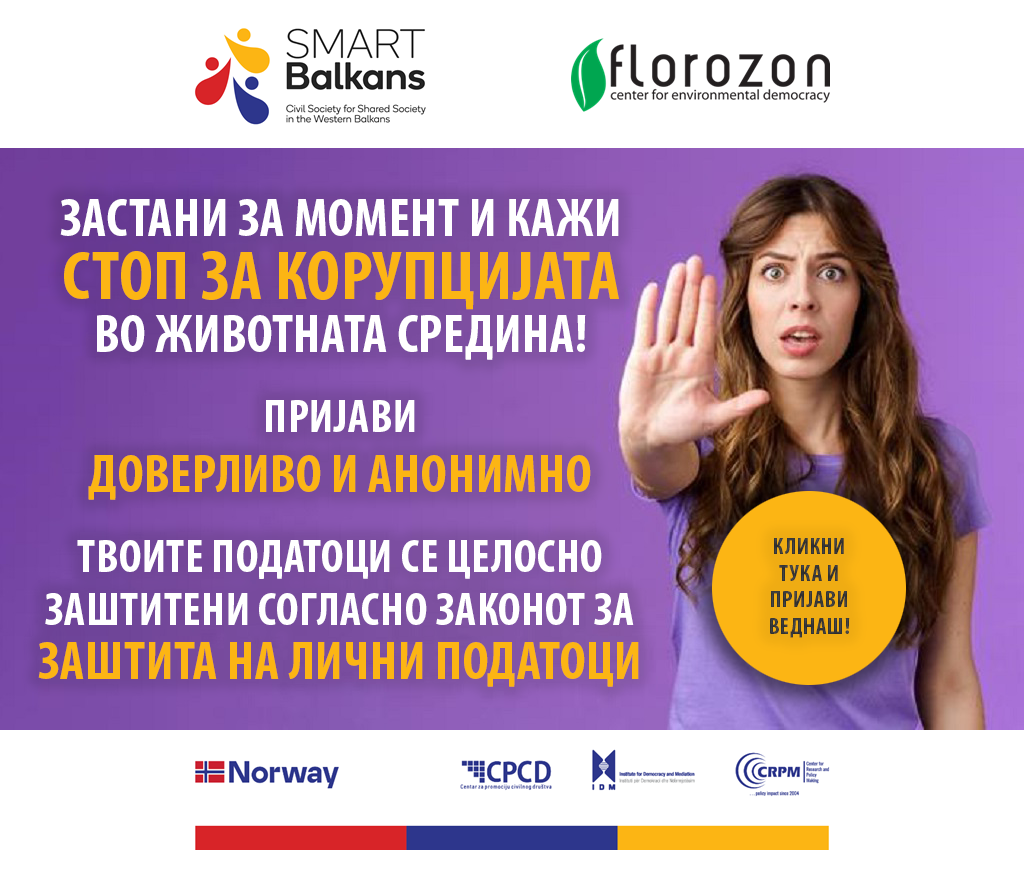During the past week, FLOROZON – Center for Environmental Democracy actively participated in a transnational event held in Ajdovščina, Slovenia, as part of the NBS4RESILIENCE project under the Interreg IPA Adrion Programme. The event brought together project partners from six countries with a shared goal — to exchange knowledge, experiences, and innovative practices for strengthening climate resilience through Nature-Based Solutions (NBS).
Representatives from partner institutions presented their ongoing progress in developing participatory models and pilot interventions for climate adaptation. The meeting served as a platform for discussing regional challenges, identifying common priorities, and aligning future actions within the project’s implementation framework.
A key contribution from FLOROZON came through Mr. Kiril Ristovski, who moderated the thematic session “Participative Identification of Climate Challenges.” The session featured presentations from all partners, highlighting the results of their stakeholder engagement workshops conducted in their respective countries. Through these discussions, participants identified key climate risks affecting local communities and proposed Nature-Based Solutions with strong potential for cross-regional replication and scalability.
The outcomes of the session directly contributed to the joint preparation of methodological guidelines for developing local NBS implementation plans. Furthermore, the debate provided valuable input on enhancing community resilience, improving spatial planning processes, and optimizing ecosystem services in both urban and rural contexts.
As the concluding part of the event, participants took part in an on-site field visit organized by the Municipality of Ajdovščina, where they had the opportunity to observe local initiatives and future plans aimed at integrating Nature-Based Solutions for flood prevention. This practical demonstration illustrated how ecosystem-based approaches are becoming an essential component of the municipality’s local climate resilience strategy.
The event reaffirmed the shared commitment of all partners to promoting sustainable and nature-driven solutions for climate adaptation, emphasizing collaboration as a key driver for building a resilient Adriatic-Ionian region.
Representatives from partner institutions presented their ongoing progress in developing participatory models and pilot interventions for climate adaptation. The meeting served as a platform for discussing regional challenges, identifying common priorities, and aligning future actions within the project’s implementation framework.
A key contribution from FLOROZON came through Mr. Kiril Ristovski, who moderated the thematic session “Participative Identification of Climate Challenges.” The session featured presentations from all partners, highlighting the results of their stakeholder engagement workshops conducted in their respective countries. Through these discussions, participants identified key climate risks affecting local communities and proposed Nature-Based Solutions with strong potential for cross-regional replication and scalability.
The outcomes of the session directly contributed to the joint preparation of methodological guidelines for developing local NBS implementation plans. Furthermore, the debate provided valuable input on enhancing community resilience, improving spatial planning processes, and optimizing ecosystem services in both urban and rural contexts.
As the concluding part of the event, participants took part in an on-site field visit organized by the Municipality of Ajdovščina, where they had the opportunity to observe local initiatives and future plans aimed at integrating Nature-Based Solutions for flood prevention. This practical demonstration illustrated how ecosystem-based approaches are becoming an essential component of the municipality’s local climate resilience strategy.
The event reaffirmed the shared commitment of all partners to promoting sustainable and nature-driven solutions for climate adaptation, emphasizing collaboration as a key driver for building a resilient Adriatic-Ionian region.





